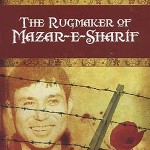In applying the theme of conflict to an analysis on Graham Greene’s mid-1950s novel The Quiet American, we cannot avoid the constant, juxtaposed pairing of motifs that create the plot basis of the narrative: non-involvement versus action, neutrality versus commitment, ‘‘dégagé’’ versus ‘‘engagé’’. The idea of conflict is both explicitly and implicitly explored in the text at a societal as well as a personal level. Being set in Vietnam before the defeat and subsequent withdrawal of the French, provides a backdrop to a clash between personal and political ideologies. Throughout the novel there is a running debate on the issue of foreign intervention in Indochina. In terms of political symbolism, it is Fowler and Pyle’s rival attempts to possess Phuong that reflect the West’s attempts to possess and control Vietnam itself.
The Crux of this Novel and the Central Dilemma
The text raises key questions of its protagonist Thomas Fowler. How long can a non-participating observer — a cynical, middle-aged British journalist paid to report only the facts of conflict — stand on the sidelines until he is compelled to pass a personal and moral judgment upon another, and to become involved? Fowler clearly points out to Pyle “I don’t know what I’m talking politics for. They don’t interest me and I’m a reporter. I’m not engagé’’… “I don’t take sides. I’ll be still reporting, whoever wins” (p.88). We are forced to question whether there is any such thing as the moral high ground. Sooner or later Fowler finds out what Captain Trouin tells him is the truth “One has to take sides. If one is to remain human” (p.166).
A Moral Choice
Does Fowler have Pyle killed as a result of his jealousy over Phuong’s desertion of him for the American? Or is he asserting his humanity and taking sides? He sacrifices his friend to prevent further needless civilian deaths but Greene is ambiguous on how far Fowler’s motives are honest. Greene in fact makes Fowler deal with a moral choice but he is left with a guilt that is reluctant to let him go. Human life according to Greene is muddied, even chaotic with dark and contradictory elements in Fowler that leave the reader with more questions than answers at the end of the novel.
The Exposition of Conflict
The exposition of conflict is played out through the relationship between Fowler the journalist, who is also the first-person, confessional narrator of the novel, and Pyle, a young American governmental representative. Pyle, described by Fowler as a “quiet American”, (p. 9) is inoculated with a textbook education — little more than an academic and ideological theory — on how the creation of a political and military ‘‘Third Force’’ might bring the values of American-style democracy to a Vietnam being destroyed by a war waged between French colonialism and the insurgency of nationalist communism during the early 1950s.
Personal Conflict
Complicating and intensifying matters is the more personal conflict arising in Saigon between the two characters when Pyle falls in love with Fowler’s mistress, Phuong; behind the scenes, with the collusion of a ‘‘third force’’ in Phuong’s grasping older sister, Pyle succeeds in winning her. Embittered, and a man accustomed to deserting wives and girlfriends rather than them leaving him, Fowler breaks down in the toilet, symbolically, of the American Legation building: ‘‘… with my head against the cold wall I cried. I hadn’t cried until now. Even their lavatories were air-conditioned, and presently the temperate tempered air dried my tears as it dries the spit in your mouth and the seed in your body’’ (p.139).
Interconnected Conflicts and Love, Personal Relationships and War
This is black comedy rather than tragic drama. It is also one example in the novel of where the wider, large-scale conflict of war and ideology, as viewed from Fowler’s stance, intersects and coalesces with the personal. For Phuong may also be interpreted in a wider sense as representative of the culture, nature and beauty of a ‘‘feminised’’, perhaps idealised image of traditional Vietnam being fought over by an old, tired, cynical Europe and a thoroughly modern, optimistic, yet unworldly United States.
Through Fowler, Greene’s ferocious contempt for the popularity and insidious spread of American values, affluence, behaviour and antiseptic cleanliness is obvious. He even associates the name ‘‘Pyle’’ with constipation and haemorrhoids in one sequence.
For example, although the novel is narrated by Fowler, Greene ensures an alternative — and accurate — point of view through two sequences in which the British journalist receives a letter and a telegram from his deserted and badly hurt wife, in which she refers to Phuong and to his serial emotional insecurity and weakness: ‘‘You pick up women like your coat picks up dust … I suppose like the rest of us you are getting old and don’t like living alone … You say that we’ve always tried to tell the truth to each other, but, Thomas, your truth is always so temporary’’ (p.108-110 ).
Engagé – Commitment
Engagé is foretold in a scene in which Fowler accompanies Trouin, a French air force pilot, on an aerial bombing mission, in which a sampan and its crew are casually obliterated. Who should feel responsible for this, and for the dropping of napalm on villages? The pilot only, carrying out his nation’s orders? Trouin insists that at some point everyone, including Fowler, will be forced to take sides, because you cannot stand aside and be dispassionate: ‘‘It’s not a matter of reason or justice. We all get involved in a moment of emotion and then we cannot get out. War and Love — they have always been compared’’ (p.144).
Fowler’s moment is the realisation that Pyle’s covert activities in organising a ‘‘democratic’’ Third Force have brought bloodshed to the streets of Saigon. Yet it is more complex than this. It is also a moment that deeply involves the personal — ‘‘War and Love’’ (p.144) — for Fowler’s immediate reaction is that Phuong has been caught up in the bombing, and that Pyle is directly responsible. Phuong is safe, but Fowler is fully engagé for the first time: ‘‘I thought, ‘What’s the good? He’ll always be innocent, you can’t blame the innocent, they are always guiltless. All you can do is control them or eliminate them. Innocence is a kind of insanity’ ’’ (p.155).
Dégagé – Professional Neutrality
Ironically, Pyle’s ‘‘elimination’’ at the hands of the local communists can be traced back to Fowler’s non-partisan, dégagé newspaper coverage of the war, and the fact that the communists trust him. ‘‘Mr Fowler, you are British. You are neutral. You have been fair to all of us,’’ (p.120) says one of their sympathisers, Mr Heng. This reputation of professional neutrality from conflict, and the consequent insider knowledge supplied to him by the communists, is precisely the factor that has awoken Fowler to Pyle’s quiet ‘‘insanity’’, and drawn him into engagement.
Is Fowler a Murderer by Proxy?
Regardless of cause, motive and justification, is Fowler, by proxy and at arm’s length, a murderer? At the end of the narrative, with his estranged wife willing to divorce him, he tells Phuong, ‘‘Here’s your happy ending’’ (p.180). But the words are charged with cynicism and self-recrimination. For according to Graham Greene — the unhappy country in which the author’s moral and emotional compass swings and points — there is secrecy, guilt, sorrow, and an aftermath in which peace, a quiet resting place of the soul, will never be realised.
By the conclusion of The Quiet American, the interconnected conflicts of love, personal relationships and war have reached some sense of relief and resolution through the agency of Pyle’s death. In one moment Fowler, whose constant refrain throughout the narrative has been, ‘‘Let them fight, let them love, let them murder, I would not be involved,’’ (p.20) now becomes fully engaged and complicit. Fowler’s usual response to the conflict that surrounds him has been to sit on the sidelines. However, when the conflict comes closer, threatening to undo his carefully cultivated equilibrium, his cynicism does not protect him from the horrors of war.
No Definitive Sense of Personal Redemption for Fowler
At Phat Diem, Fowler is confronted with a canal “full of bodies” (p.43) and at this time his own values are unexpectedly challenged by Pyle’s actions. He is reminded of the truth in what Captain Trouin said that “One day something will happen. You will take a side” (p.143). However, it is the bombing in Place Garnier that is the turning point for the hardened journalist. Haunted by images of the carnage he has witnessed, he realises that inaction can also have lasting consequences. Fowler’s moral conflict is stark. Does he betray the man who saved his life? Does he become complicit in the assassination of another human being? Does he allow Pyle to continue to “… play with plastics” (p.125) unchecked and kill more innocent people?
Yet when he does engagé, Fowler ends up with a hollow victory. While Fowler may have gained in humanity by becoming ‘involved’, inevitably he feels guilt for his role in Pyle’s murder. Paradoxically, he has become like Pyle “… I had betrayed my own principles; I had become engagé as Pyle, and it seemed to me that no decision would ever be simple again” (p.175). Nonetheless, Fowler expresses remorse for the part he played in Pyle’s death. He remarks at the end of the novel “Everything has gone right with me since he had died, but how I wished there existed someone to whom I could say that I was sorry” (p.180). In the end I believe Fowler is fully engagé and complicit.
Online Tutoring of English using Zoom


